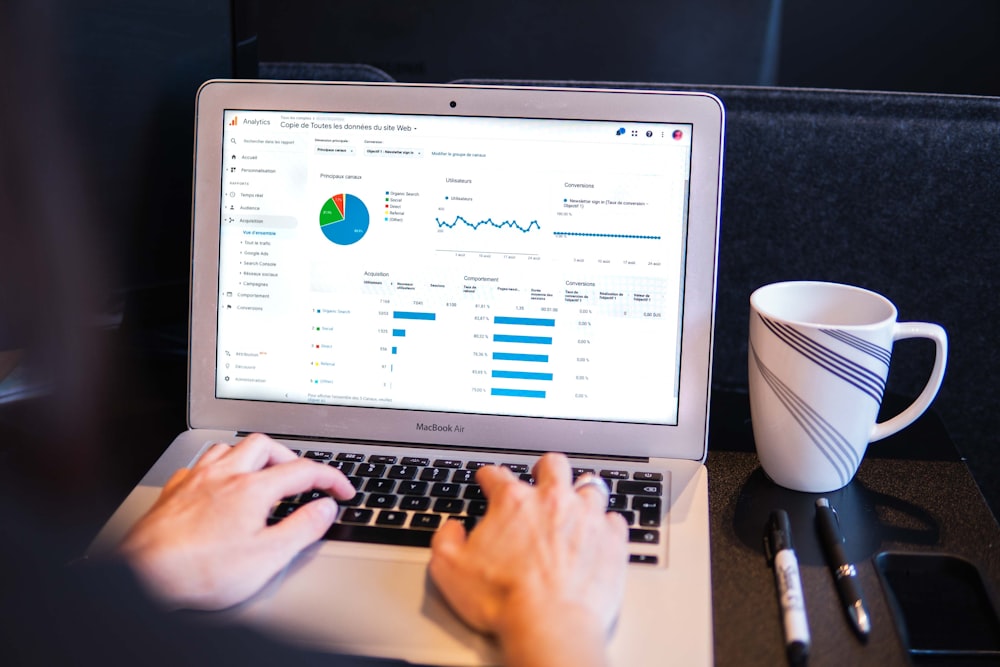5 Factors to Consider When Choosing KPIs for Your Business

Photo by fauxels @ Pexels
If you’re looking to scale your business, key performance indicators (KPIs) can help guide you on your journey to success. By carefully selecting the right KPIs for your business, you can gain invaluable insight into your organisation’s performance, identify areas for improvement, minimise costs, and ultimately drive growth.
Explore: It’s Not Just About KPIs: Why Leaders Need To Be More Hands-On
The tricky part is choosing the right KPIs for your business. It’s a process that requires considering a variety of factors to ensure the chosen KPIs align with your business’s goals and objectives. The KPIs vary between industries, companies, and even departments, so choosing the right ones for your business in order to gauge whether it’s on track to achieve its goals takes time and careful consideration.

In this article, we delve into the world of KPIs and explain what they are, why they matter, and how to choose them for your company so you can track your progress, improve your results, and stay on track with your goals and objectives.
Understanding KPIs
KPIs can best be described as your business’s vital signs as they measure its health and performance. In short, they are quantifiable measurements that reveal whether your organisation is hitting its targets or veering off course.
Depending on the industry, KPIs can be sales figures, customer satisfaction ratings, website traffic, employee turnover, customer retention, and more – anything that matters the most to your business goals.
This may interest you: Do You Know Performance From Productivity?
Choosing the Right KPIs
There are many different KPIs: some focus on revenue growth, others on customers, some on operations, and still others on employee metrics. Picking the right ones for your business and goals is essential for gaining data-driven insights that can inform your decision-making.

For example, if you run a bakery, your KPIs would likely include daily sales, customer reviews, and maybe even the number of specific pastries sold per day. But if you have a tech startup, your KPIs would likely be monthly active users, conversion rates, and customer retention. The point is, the right KPIs depend on your unique business and what you’re trying to achieve with it.
Here are some questions to ask yourself when choosing the KPIs for your organisation.
What Industry Are You In?
The first step in choosing the right KPIs for your company is staying true to your industry. For example, if you’re in manufacturing, you’ll want to focus only on KPI tracking in lean manufacturing, such as throughout, production cycle time, overall equipment effectiveness, manufacturing costs per unit, etc. But if you’re in retail, tracking foot traffic and inventory turnover would be essential. The key is to tailor your KPIs to your industry’s specific challenges and opportunities.
What Are Your Business Goals?
Your KPIs should, first and foremost, align with what you want to achieve. For instance, if your goal is to expand globally, tracking international sales growth and market penetration would make sense. If you’re looking to improve operational efficiency, KPIs like production cycle time and waste reduction would be your go-tos.
Read more: How to Help All Your Team Members Achieve Their Goals
Can You Measure Your KPIs?
While having aspirational goals is important, so is choosing KPIs that you can actually measure. After all, if you can’t measure a KPI accurately, it loses its value as a performance indicator. For example, if you want to improve customer satisfaction but you don’t have a system to gather customer feedback, there’s no point in choosing this indicator. So, before finalising your KPIs, make sure you have the tools and techniques in place to collect and analyse the required data.

What Are Your Leading and Lagging Indicators?
KPIs can be categorised into leading and lagging indicators. The former indicators predict future outcomes (like website traffic trends), while the latter reflect past performance (like net profit). To gain a comprehensive view of your business’s overall health and performance, it’s good to have both types of KPIs.
Are Your KPIs Flexible?
The business world is an ever-changing one, and if you want to be successful long-term, it’s essential to be flexible and adaptable. The same goes for KPIs – if (or rather when) market dynamics shift, your KPIs should also change. So, stay agile and regularly review and update your KPIs to keep up with changes.
Supplementary reading: 6 Ways To Efficiently Evaluate Work-From-Home Employees
Final Thoughts
Choosing the right KPIs for your business is a strategic process that involves careful consideration of your goals, industry, data availability, and more. At the same time, it’s not a one-shot deal – it’s an ongoing journey that requires flexibility and alignment with your business’s objectives. But by aligning your KPIs with your goals, you can create a set of indicators that provide truly meaningful insights about your organisation and ultimately contribute to your business’s success.
Be sure to check out the media below:
Leaderonomics.com is an advertisement-free website. Your continuous support and trust in us allow us to curate, deliver and upkeep the maintenance of our website. When you support us, you enable millions to continue reading for free on our website. Will you give it today? Click here to support us.
Business
Sari Cada is a freelance content writer. She is interested in a wide range of fields, from health to education, project management, business, and engineering.





